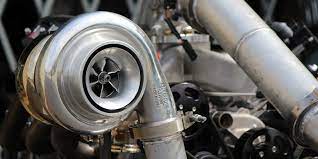Turbochargers are essential for modern engines, increasing their power and efficiency. However, over time, they can wear out and require replacement.
Turbochargers play a critical role in the performance of modern-day engines. They work by forcing more air into the engine, which in turn increases power and improves fuel efficiency. Over time, turbochargers can deteriorate and lose their effectiveness, causing a drop in engine performance. That’s why it’s important to replace them when the time comes. A new turbocharger not only ensures that your engine is running at full capacity but also helps prevent more costly repairs down the road.
Ignoring the signs of a failing turbocharger can result in more significant problems down the road. So, in this blog post, we will outline the five key signs that your turbocharger needs replacement ASAP.
Reduced Engine Power
One of the most common signs that your turbocharger needs replacement is reduced engine power. If your engine is struggling to accelerate, is sluggish or hesitant, or is not as responsive as usual, it could be due to a failing turbocharger. The reason for this is that a failing turbocharger cannot deliver the same amount of air pressure to the engine, leading to reduced power output.
Poor Fuel Economy
Another indication that there may be a problem with your turbocharger is poor fuel economy. A damaged turbocharger can make your engine work harder, leading to excess fuel consumption. If you have noticed that your car is using more fuel than usual, or if you are regularly filling up your tank, it may be time to have your turbocharger checked.
Strange Noises
Turbochargers operate at high speeds and under extreme temperatures, making them prone to wear and tear. If you begin to hear unusual noises coming from your engine, such as a whistling or grinding sound, it could indicate a problem with your turbocharger. Additionally, if you hear a loud metallic noise when accelerating, this could be a sign that your turbocharger has failed completely and is now disintegrating inside your engine—do not continue driving if you suspect this.
Smoke from the Exhaust
A damaged turbocharger can lead to oil leaks from the turbo housing. If you notice smoke coming from the exhaust pipe or notice a burning smell from the engine area, this indicates that oil is being burnt and that there is a problem with the turbocharger. You should have this checked immediately, as operating the engine with low oil levels can result in serious damage.
Warning Lights on the Dashboard
Finally, if you see any warning lights on your car’s dashboard, it is essential to take action quickly. Pay attention to the check engine light: if it illuminates, it could be due to a turbocharger failure. Additionally, other warning lights, such as the oil pressure or coolant temperature warnings, can also be signs of a failing turbocharger that requires swift action.
Conclusion
Your car’s turbocharger is a vital component that increases its power and efficiency. However, it is also subject to wear and tear, and ignoring the warning signs of a failing turbocharger can lead to more problems down the line. If you notice any of the five signs outlined in this post, we recommend that you have your engine checked by a professional as soon as possible. If you want simple maintenance and early detection of a faulty turbocharger, click to visit and save yourself money and stress in the long run.











